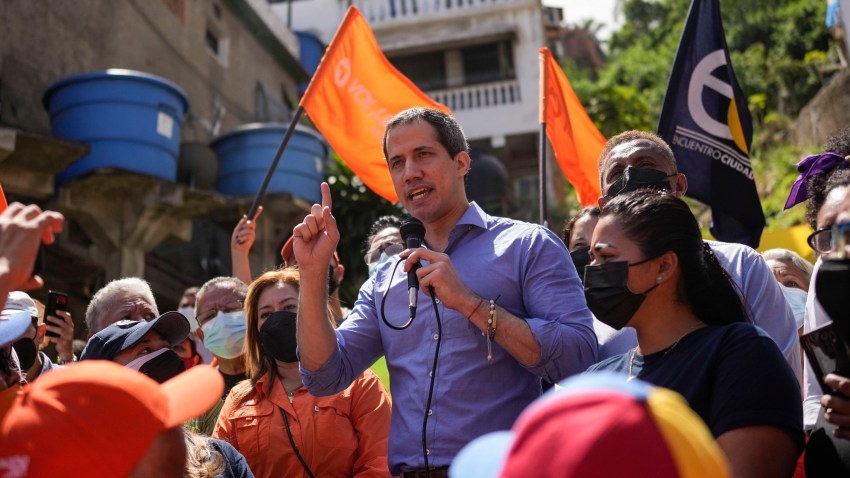Today at WPR, we’re covering Iran’s short-range missile and drone systems, Syria’s reconstruction conundrum and U.S.-China cooperation in science and technology.
But first, here’s our take on today’s top story.
Venezuelan: The Biden administration and the Maduro regime have agreed to a deal in which the U.S. would ease sanctions on Venezuela’s oil industry in return for a guarantee by the authoritarian government there that it will allow for a competitive, internationally monitored presidential election next year. (Washington Post)
Our Take: While the deal may mark a breakthrough in Venezuela’s political stalemate, there are also, without a doubt, plenty of reasons to be skeptical. Most obviously, there is no guarantee that Venezuelan President Nicolas Maduro will follow through on his end of the bargain.
Get the Daily Review sent straight to your inbox every weekday.
After all, the Maduro regime has routinely used drawn-out negotiations with the country’s opposition as a way to delay making concessions while continuing to crack down on his opponents. What’s more, if sanctions relief comes before the presidential election next year, it will provide Maduro with a boost ahead of those polls, while also removing any incentive he has to actually guarantee a competitive ballot.
As a result, even some members of Venezuela’s opposition, which is set to sign the agreement today, are skeptical that Maduro will follow through on his promises.
Still, the alternative to the deal is the status quo, one in which the opposition is completely decimated. As a result, nominally competitive elections, even with the concessions required to achieve them, appear to be the least bad option for potentially restoring Venezuelan democracy and reestablishing the country’s opposition as a viable political force, at the very least.
Plus, as Mark Feierstein wrote last year, the 2024 presidential election doesn’t have to be completely free and fair. In fact, it certainly won’t be. The election simply has to be competitive enough to allow the opposition candidate to win. That level of competition is possible, but it will require continued pressure on Maduro from the West.

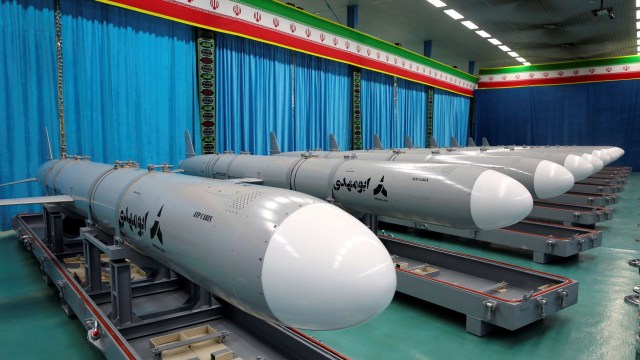
Iran’s Short-Range Missiles and Drones Are Now a Regional Reality
Iran’s long-range ballistic missiles have long been the focus of international attention. The war between Israel and Hamas, however, has raised the urgency of understanding other Iranian strike capabilities, especially the newer, shorter-range systems used by Iranian proxies such as Hezbollah.
As Shahryar Pasandideh writes, over the past two decades, Iran has developed and deployed an increasingly diverse array of shorter-range strike systems, which are employed by Iranian proxies with increasing regularity. Through them, Iran has greatly enhanced its regional strike capabilities.
Assad’s Diplomatic Gains Aren’t Paying Off for Syrian Reconstruction
When Syrian President Bashar al-Assad stepped onto the tarmac in Hangzhou, China, in late September, the warm reception and fanfare he received signaled the diplomatic revival he has long hoped for.
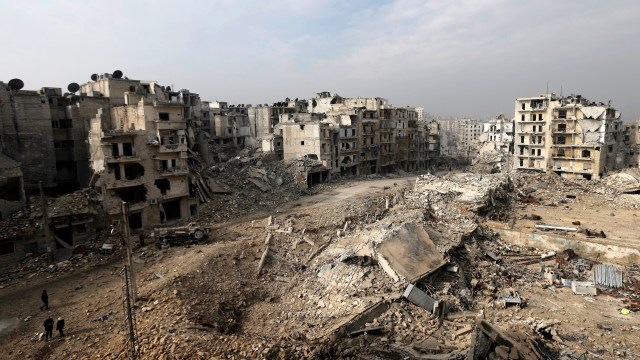
Despite his diplomatic gains, however, Assad walked away from his meeting with Chinese President Xi Jinping empty-handed when it comes to financial commitments toward reconstruction of Syria’s still-devastated infrastructure. Worse still for him, China isn’t alone in its reticence toward Syria.
Jonathan Fenton-Harvey breaks down Assad’s conundrum.
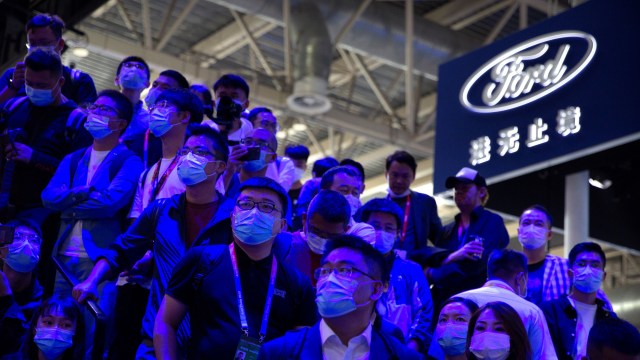
The U.S. Can’t Afford a Science and Tech Decoupling From China
Attempts to decouple science and technology cooperation between the U.S. and China have intensified over the past five years, occurring across three major areas: education, government and industry.
While it’s undeniable that collaboration in these fields has benefited China more than the United States, the U.S. shouldn’t ignore the contributions that this collaboration has made to U.S. universities, society and corporations over the past four decades, columnist Mary Gallagher writes.

Question of the Day: Which of the following officials of the Ukraine government has NOT been charged with or accused of corruption?
- Defense Minister Oleksii Reznikov
- Ihor Kolomoisky, an oligarch and former regional governor
- Kyrylo Tymoshenko, deputy head of the presidential office
- Kira Rudik, the leader of the liberal Golos party
Find the answer in the latest WPR Weekly Quiz, then read Amanda Coakley’s briefing on domestic politics in wartime Ukraine.

Russian President Vladimir Putin will meet with Chinese President Xi Jinping this week in Beijing, where the two leaders are expected to discuss the war in Ukraine and the Israel-Hamas war, all while attempting to demonstrate the strength of their “no limits” partnership.
Indeed, rhetoric from Russian and Chinese officials about the partnership has been consistently effusive, often highlighting the synergies between the two sides’ perspectives on the global order. But as Samuel Ramani wrote earlier this month, that rhetoric masks a significant vulnerability in the Russia-China strategic partnership.
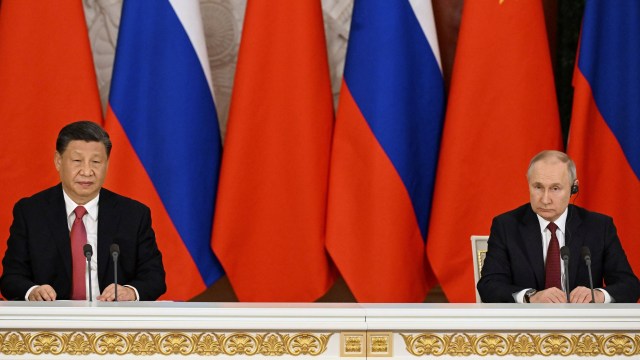
Russia and China Don’t See Eye to Eye in the Middle East and Africa
Oct. 3, 2023 | China and Russia both champion a multipolar world. But their interests are at odds in the Middle East and Africa. Read more.
Indonesia’s constitutional court has issued a controversial ruling that will allow outgoing President Joko Widodo’s son to run for vice president in next year’s election. Indonesia’s constitution bars anyone under the age of 40 from seeking the presidency or vice presidency, but the court issued an exception for candidates who have previously held regional office, as Widodo’s son has.
Widodo is himself barred from running for a third term, but as Erin Cook wrote in June, the most enduring legacy he looks likely to leave behind him is the establishment of a new political dynasty via his two sons and son-in-law.
Indonesia’s Jokowi Will Leave Behind a Legacy of Disappointment
June 27, 2023 | Having failed to reform Indonesia’s politics and economy, President Joko Widodo is seeking to found a dynasty. Read more.
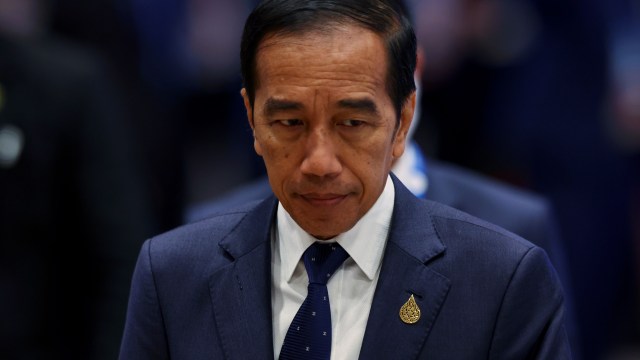
More From WPR
- James Bosworth on Guatemala’s democratic transition.
- Michael Clarke on thawing Australia-China relations.
- Paul Poast on “frozen conflicts” going hot.
- Afolabi Adekaiyaoja on coups in Africa.

